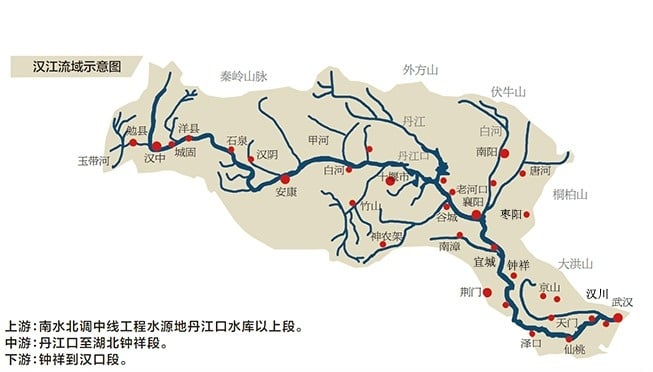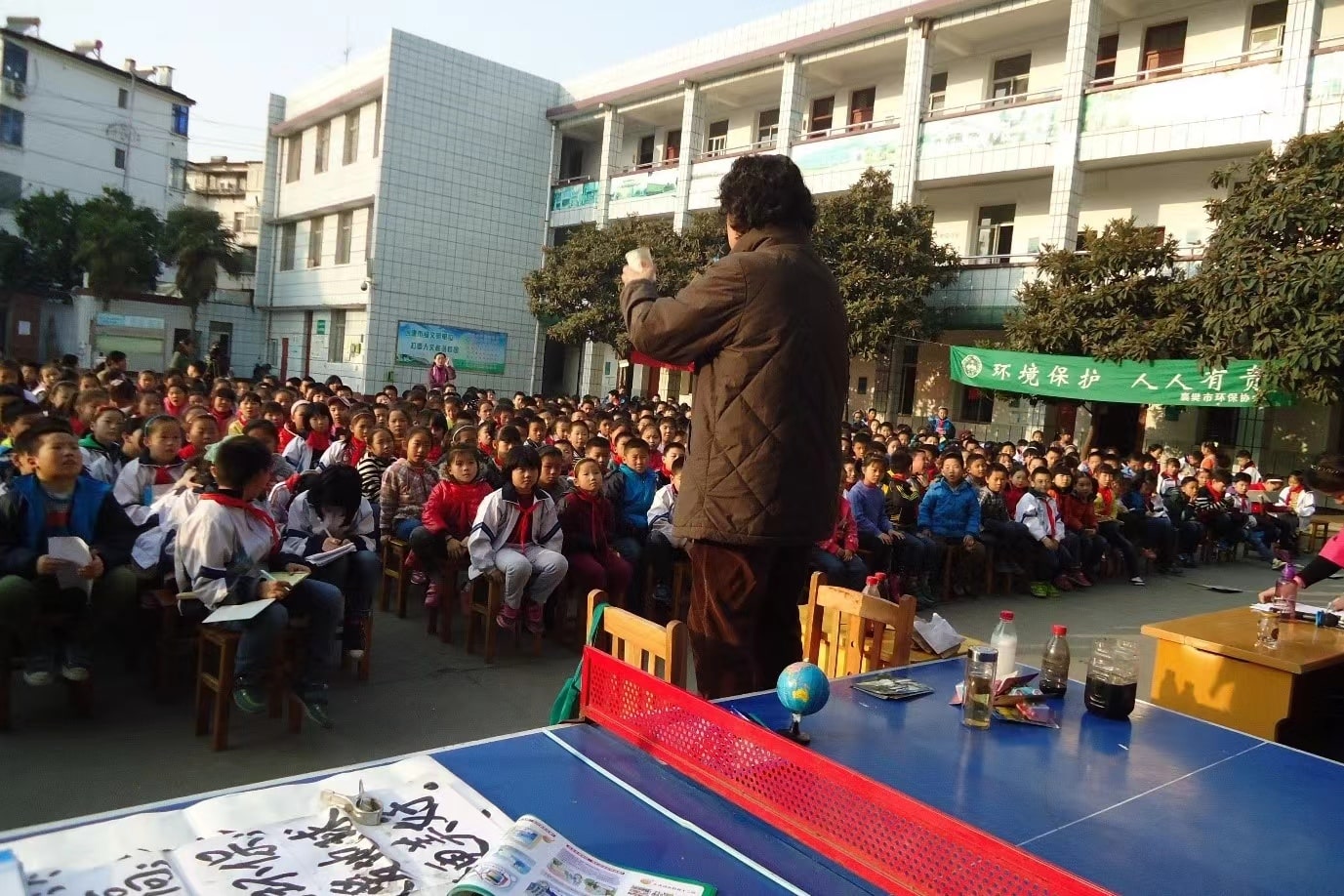A few years ago, as I walked along a street adjacent to Erlizhuang Primary School in Beijing’s Dongcheng District, I noticed a photograph pinned to a display board. One of the photographs showed a familiar figure, Yun Jianli, lecturing to a group of students. Yun had been invited to Beijing by the school to talk about water conservation.
It was one of several hundred lectures Yun has given in her decades-long efforts to raise awareness of river conservation, particularly on the Hanjiang River in Hubei Province.
In 2000, on a winter’s day just after the Chinese New Year, Yun was riding a bus across a bridge over the Hanjiang River in Xiangfan when a passenger next to her looked out the window and muttered, “They’re dumping pollutants into the Hanjiang River again!” A passenger behind her commented, “This is nothing, you should come to Zaoyang and see what a black river is!”
Yun was surprised by these comments about her hometown, her childhood memories of Zaoyang’s river was of a crystal clear and beautiful waterway.
In March that year, Yun invited an official from the local environmental protection bureau to Zaoyang. What they encountered was a dark river, blackened banks and toxic smell in the air, all caused by two paper mills.
Yun then spent another month visiting the four tributaries of the Hanjiang and wrote an investigative report on the pollution. She read the report at a meeting of the Standing Committee of the Xiangfang People’s Political Consultative Conference (PPCC).
Yun has been on a crusade to clean up the river ever since. This was at a time when the Beijing government was planning to divert water from the upper Hanjiang River to water-starved Beijing as part of the South-to-North Water Diversion Project. The loss of a significant amount of clean water would inevitably have a huge impact on the Hanjiang River, reducing the quality of its water and its ability to support life and get rid of pollution.

Rising from the southern slopes of the Qingling Mountains, the Hanjiang River is the largest tributary of the Yangtze River. The name for the largest Chinese ethnic group, the Han, originally came from the ancient Han Dynasty, which took its name from the Han River.
In 1990, Yun joined the Xiangfan government as secretary-general of the Xiangfan Federation of Returned Overseas Chinese. During her 14 years with the government institution and as a member of the PPCC, she gained valuable experience and made important connections with officials.
Since Yun’s investigation into river pollution in 2000, paper mills and other township and village companies have continued to spring up along the upper reaches of the Hanjiang River, posing serious risks to human health and local wildlife, with some species of fish disappearing from the river altogether.
Recognizing the need to mobilize public support for her cause, Yun founded Green Hanjiang in 2002. The group organizes river walks and publishes newsletters, which are distributed to government officials, schools and group members.
Yun also served as a member of the Hubei Provincial People’s Political Consultative Conference and as an executive member of the Hubei Provincial Women’s Federation. In her various government positions, she was the most committed spokesperson for the Hanjiang River.
After learning of Yun’s passion for protecting the Hanjiang, the New York-based Waterkeeper Alliance helped the group buy a boat. Yun named it the Green Hanjiang Boat. On weekends, the group arranged for people from all walks of life to tour the Hanjiang River. Yun would lecture them on the river’s environmental problems during the boat trip.
Through the efforts of Yun and her group, numerous polluters along the Hanjiang River were closed down. Using its unique status as a non-governmental group, Green Hanjiang has also successfully lobbied for the closure of polluting companies in neighboring Henan Province.
While fighting water pollution, Yun is also mindful of the livelihoods of residents in affected villages. Yun helped raise the necessary funds from the government, World Bank and the Japanese Embassy in Beijing to install water facilities and provide villagers with safe drinking water. Once hostile to Yun’s environmental activities, village leaders now treat Yun as a member of their family.
Yun has also composed several environmental songs and used them to spread environmental messages. Yun’s tireless efforts and passion for protecting the Hanjiang River have earned her the nickname “Eco Grandma”. Yun, now aged 79, still devotes most of her time to the Hanjiang River and is a regular face at the Green Hanjiang office, with retirement seemingly still not on the cards.

Main article photo provided to CDB.



